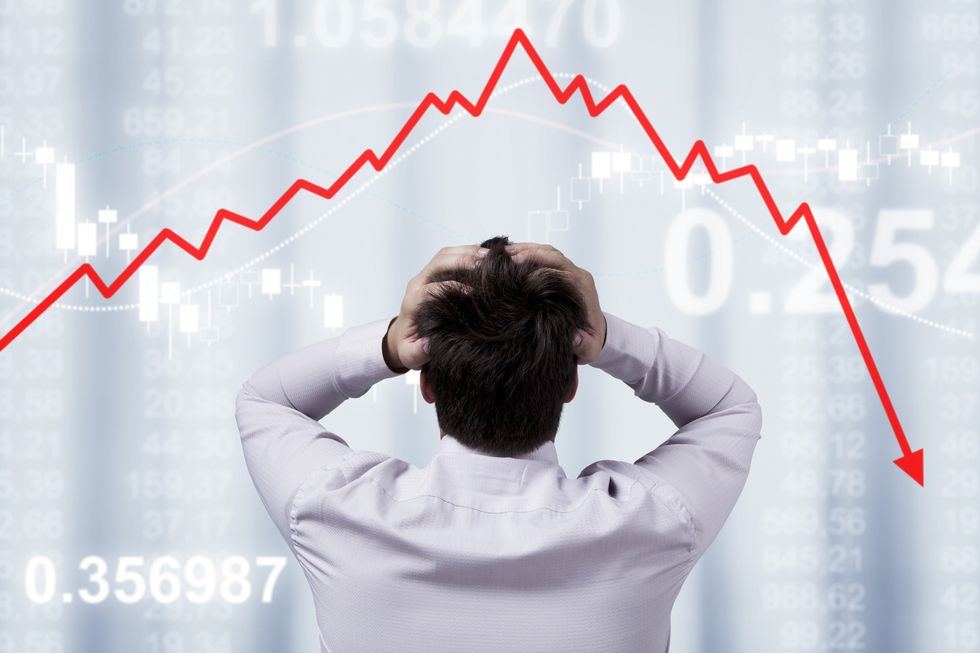Temie Laleye
Guest Reporter

UK homeowners have been issued an urgent warning as mortgage rates are projected to climb to 4.5 per cent by 2027, according to the latest figures.
The warning follows the bleak outlook on Britain's economy over the coming years with growth reaching a lacklustre 1.4 per cent in 2026.
In its latest report, the National Institute of Economic and Social Research explained that the country could post economic growth of just 0.4 per cent next year if Trump implements the tariffs he promised, said Ahmet Kaya, principal economist at NIESR.
During a presentation of NIESR's latest forecasts, Kaya said: "Relative stability is under serious threat by the potential raising of import tariffs in the United States.
"The Bank of England would probably have to raise interest rates to counter a rise in prices caused by higher US tariffs but inflation would still probably rise by between two and three percentage points over two years.
"That kind of increase in borrowing costs would deal a major blow to the plans of the new UK Government to use more borrowing in addition to tax rises to fund increased spending."

The cost of borrowing keeps climbing as the Donald Trump victory in the US election adds to post-budget increases.
UK bond yields, or gilt yields, a key instrument in determining consumer borrowing rates such as mortgages, continue to rise following his second appointment to office.
Susannah Streeter, head of money and markets at Hargreaves Lansdown said: "Fresh nervousness has been sweeping financial markets after Donald Trump’s triumphant win.
"His policies look set to increase inflationary pressures and swell the US deficit even further, with knock-on effects expected for the UK economy."
The yield (the interest rate) offered by two-year UK government bonds rose to 4.51 per cent, while the ten-year bond's yield rose to 4.57 per cent.
LATEST DEVELOPMENTS:
- Tesla stocks rise 12% overnight as Elon Musk to benefit from Trump election win
- Mortgage rates set to soar as cost of UK gilts hits 12-month high
- Pound suffers biggest fall in 18 months as UK borrowing costs soar
Streeter added: "Gilts often move in tandem with treasuries and this special relationship is playing out today, pushing up UK borrowing costs sharply.
"Concerns about the inflationary knock-on effect of the fresh wave of tariffs promised by Trump are seeping through the markets.
"There is also concern that his trade policies could hold back Britain’s economic growth. The fear of a stagflation scenario emerging in some economies appears once again to be stalking markets."
The Pound to Dollar exchange rate (GBP/USD) slumped by 1.25 per cent yesterday but is today back above 1.29 at 1.2935. The Pound to Euro exchange rate has dropped in today's afternoon trade, dipping below 1.19 to hit 1.1868.
The Office for Budget and Responsibility found that UK borrowing is projected to rise marginally from £122billion (4.5 per cent of GDP) last year to £127billion this year, following Rachel Reeves's Autumn Budget.
The 198-page OBR analysis revealed average mortgage interest rates will rise steadily from 3.7 per cent in 2024, reaching their peak (4.5 per cent) in three years' time.
The rise is attributed to the spike in swap rates last week which saw rates climb from 3.87 per cent on October 29 to 4.04 per cent for five-year swaps.
The surge in rates will particularly impact borrowers coming off fixed-rate deals secured during the period of ultra-low borrowing costs between 2020 and 2022.
Thousands of fixed-rate deals are expected to expire by the end of 2026, potentially exposing more homeowners to higher rates.
The OBR's latest forecast shows mortgage rates will be "around 0.3 percentage points higher on average" than previously predicted in March, driven by higher Bank Rate expectations.

The OBR forecasts indicate inflation will remain above the Bank of England's two per cent target until 2029, averaging 2.5 per cent this year and 2.6 per cent next year.
This persistent high inflation could deter the Bank of England from reducing interest rates in the near future, despite the current base rate sitting at five per cent
Matt Britzman, analyst at Hargreaves Lansdown, noted investors are "re-assessing where UK interest rates might end up, given that the investment plan for growth is likely to add inflationary pressures into the economy".
Find Out More...